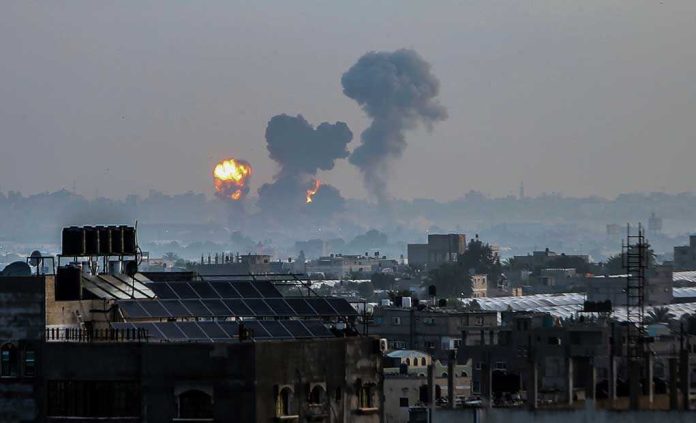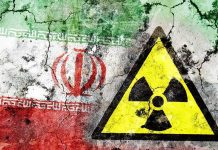
Israel’s systematic destruction of Gaza’s communications infrastructure has plunged over two million civilians into a deliberate information blackout, raising serious questions about collective punishment and war crimes under international law.
Story Highlights
- IDF deliberately targeted Gaza’s telecom towers, including the critical Mushtaha Tower on September 5, 2025
- Over two million Gaza residents now face near-total internet and phone service blackouts
- Communications blackout severely hampers humanitarian aid coordination and emergency response
- Legal experts argue the systematic targeting violates international humanitarian law
- Pattern of blackouts since October 2023 suggests strategic information suppression
Systematic Infrastructure Targeting
The Israeli Defense Forces intensified bombardment of Gaza City throughout August and September 2025, specifically targeting residential high-rises housing critical telecommunications equipment. The destruction of the Mushtaha Tower on September 5 marked a significant escalation in this campaign. Palestinian telecommunications provider Paltel confirmed widespread outages across Gaza City and northern Gaza, with repair efforts rendered nearly impossible due to ongoing strikes and hazardous conditions on the ground.
Humanitarian Crisis Deepens
The communications blackout has created catastrophic conditions for Gaza’s over two million residents, who cannot call for help, coordinate aid deliveries, or contact family members. Humanitarian organizations report severe disruptions to emergency response coordination, with medical teams unable to communicate during rescue operations. Digital rights organizations emphasize that connectivity represents a fundamental human right and lifeline, not a luxury, particularly during active conflict zones where civilian survival depends on communication access.
Legal and Strategic Implications
International legal scholars argue that Israel’s deliberate targeting of civilian communications infrastructure constitutes collective punishment and potentially war crimes under international humanitarian law. The systematic nature of these attacks, recurring since October 2023, suggests a strategic military objective to obscure documentation of events and impede accountability. This pattern of blackouts coinciding with military escalations indicates information suppression as a tool of warfare, raising serious constitutional concerns about freedom of expression and documentation.
Information Warfare Tactics
The repeated cycles of blackout and partial restoration demonstrate a calculated approach to information control during military operations. Gaza’s connectivity rate previously dropped to just 1% in December 2023 after major network destruction, highlighting the fragility of infrastructure under Israel’s longstanding blockade restrictions. Journalists and media outlets face particular challenges documenting events during blackouts, creating an information vacuum that benefits military operations while leaving civilians isolated and vulnerable to undocumented atrocities.
The Trump administration must recognize these deliberate infrastructure attacks as part of a broader pattern of collective punishment that undermines basic human rights and international law. Americans who value constitutional protections and individual liberty should understand that systematic suppression of communications represents a dangerous precedent for government overreach and information control during conflicts.
Sources:
Telecom and internet outage imminent in Gaza as Israel bombs residential high-rises
Communication Blackouts: Israeli Cyberattacks Against Civilians in Gaza
Israeli army pounds Gaza City with 150 strikes as communications collapse



